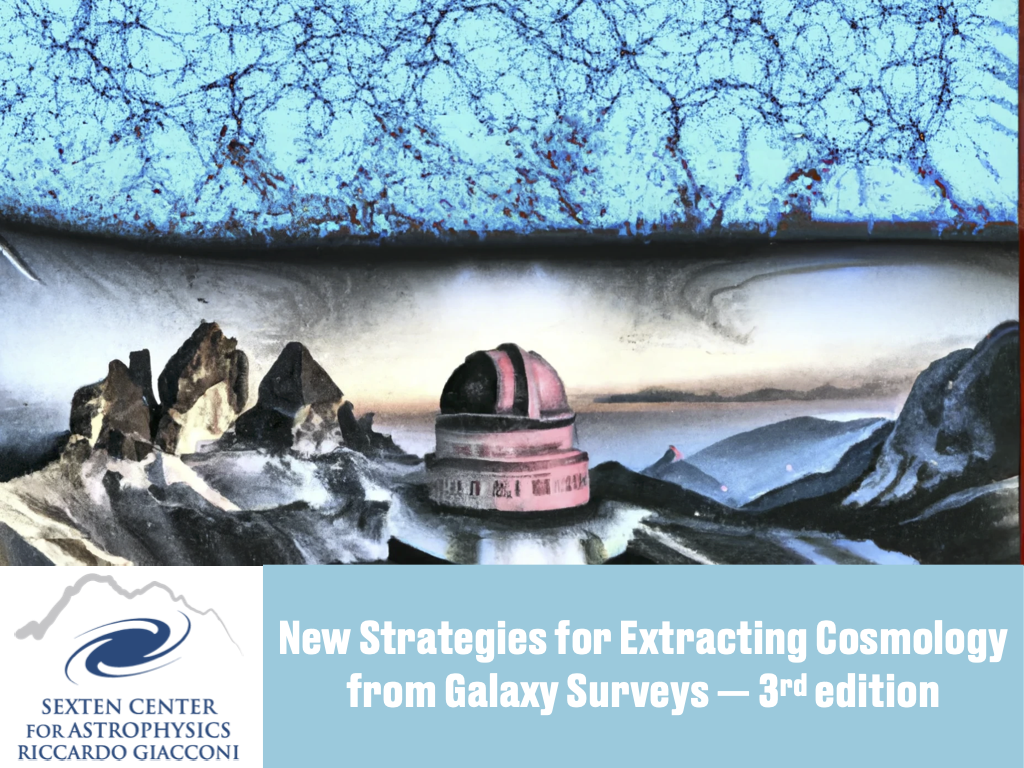
Rationale:
The next generation of large-scale structure surveys such as Euclid, DESI, LSST, SPHEREx, and SKA are providing an unprecedented amount of observational data. These surveys map large portions of the sky, observing hundreds of millions of bright galaxies up to high redshifts, effectively transforming cosmology into a data-driven, precision science. With the first public data releases from DESI and Euclid planned for early 2025 and 2026, respectively, it is more and more important for the community to develop the right techniques to efficiently extract information from this data. The large number of ongoing efforts reach from new summary statistics for efficient data compression to full forward models for field level analysis and use an expanded range of statistical techniques.
This third workshop in a very successful series will focus particularly on the validation of analyses with respect to theoretical as well as observational systematics. It will join scientific expertise from all aspects of analysis and validation pipelines, such as theoretical modeling, novel statistical methods, observational effects and mock generation. The goal is to share expertise between groups, to identify common obstacles and solutions for establishing an end-to-end pipeline, and to discuss common verification standards such analyses should pass for a robust inference.
(Confirmed) Invited speakers:
- Carolina Cuesta-Lazaro
- Mathilde Pinon
- Emiliano Sefusatti
- Beatriz Tucci
Registration:
Registration is open until March 02, 2025.
Attendance fees:
230 € (for students: 200 €), to be paid upon arrival; further support for students may be available upon request
More information:
Further information, including the meeting's Code of Conduct, payment of fees, and the organization of the bus shuttle between Venice airport and Sexten can be found here: https://www.sexten-cfa.eu/event/nsecgs25/
Previous events in this workshop series:
- 2024 (2nd edition): https://events.gwdg.de/event/573
- 2023 (1st edition): https://indico.sissa.it/event/93
